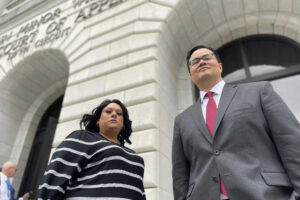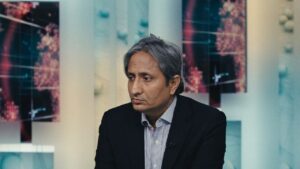Dave Eggers on Writers’ Fears of the NSA
Of more than 500 writers polled by PEN International, a writers rights and advocacy group, 16 percent said knowledge of NSA surveillance led them to abandon writing projects they thought could attract unwanted government attention. An additional 11 percent said they've "seriously considered it."
Of more than 500 writers polled by PEN International, a writers rights and advocacy group, 16 percent said knowledge of NSA surveillance led them to abandon writing projects they thought could attract unwanted government attention. An additional 11 percent said they’ve “seriously considered it.”
Beloved American author Dave Eggers described the survey as “troubling on many levels.” He wrote in The Guardian on Friday: “The gut-level response is dismay that any writer would give up so easily — that any writer would be so readily cowed into submission. After all, to date, the NSA’s surveillance hasn’t landed any writers in jail, and though there is no doubt a watchlist — and, by the way, any constitution-loving writer should want to be on such a watchlist — no one on PEN’s membership has so far been hauled in for questioning based on their phone calls, searches or internet activity.”
As the British novelist Ian McEwan was recently quoted as saying in another Guardian article about dragnet NSA spying, “Where Leviathan [the state] can, it will.”
Of the potential for misuse of the agency’s surveillance program, Rachel Levinson-Waldman, an attorney with the Brennan Center at the NYU School of Law and the author of the comprehensive report “What the Government Does with Americans’ Data,” said, “I would say you have no chance.” Eggers cites her comment on the PEN study: If writers assume they’re being watched, then “it could eliminate whole areas of inquiry. They could say, ‘It’s not worth it to me to come to the attention of the government.’ And difficult subject matter might only be pursued by those who think themselves invulnerable to scrutiny.”
Eggers adds:
Think back to all the messages you have ever sent. All the phone calls and searches you’ve made. Could any of them be misinterpreted? Could any of them be used to damage you by someone like the next McCarthy, the next Nixon, the next Ashcroft? This is the most pernicious and soul-shattering aspect of where we are right now. No one knows for sure what is being collected, recorded, analysed and stored — or how all this will be used in the future. “Citizens of a democracy need a zone of privacy, and have control over it,” Levinson-Waldman says. “If you really don’t have control over it, you can’t become an actualised member of society.”
— Posted by Alexander Reed Kelly.
Your support matters…Independent journalism is under threat and overshadowed by heavily funded mainstream media.
You can help level the playing field. Become a member.
Your tax-deductible contribution keeps us digging beneath the headlines to give you thought-provoking, investigative reporting and analysis that unearths what's really happening- without compromise.
Give today to support our courageous, independent journalists.






You need to be a supporter to comment.
There are currently no responses to this article.
Be the first to respond.